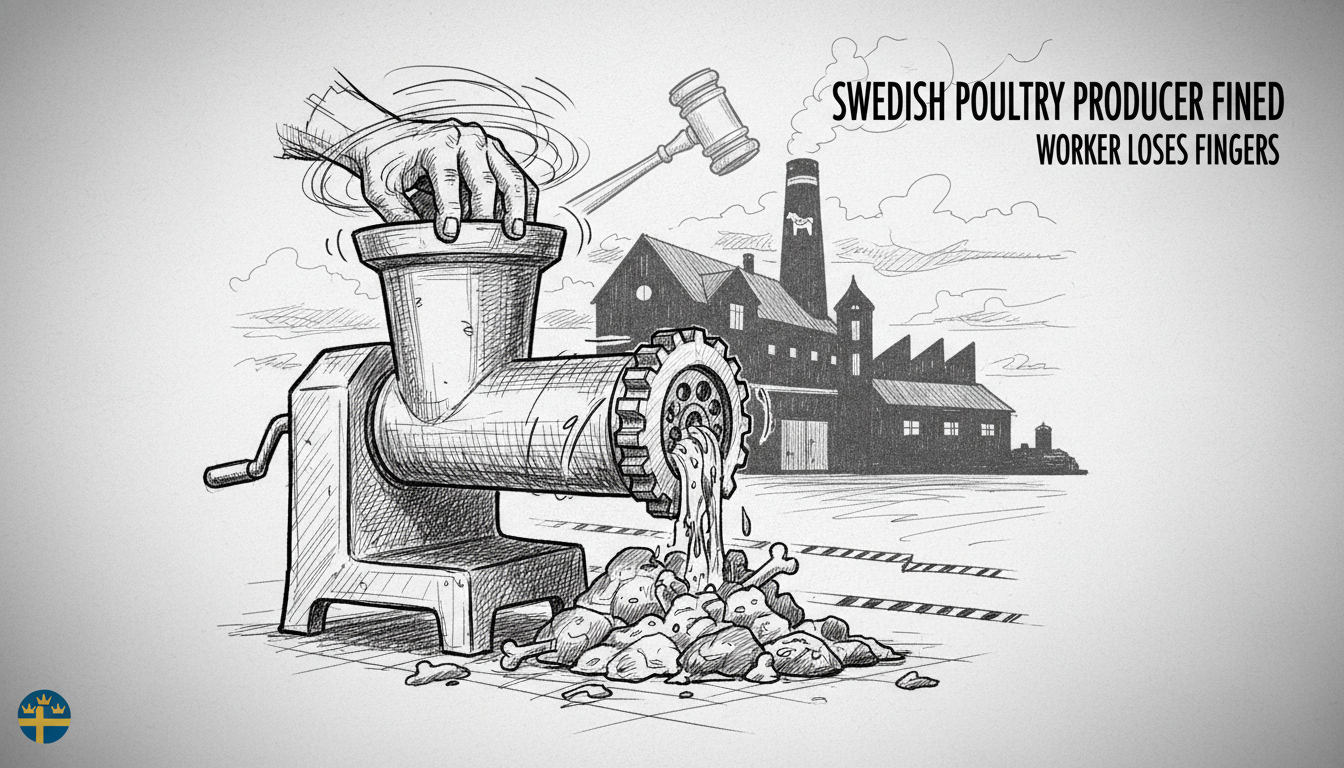A Swedish poultry company faces substantial fines after a workplace accident left an employee with permanent hand injuries. The incident occurred when a worker attempted to remove the final batch of chicken mince from an industrial mixing machine.
The employee's right hand made contact with the moving blades inside the equipment. The accident resulted in severe hand trauma that required amputation of the entire index finger and part of the middle finger. The worker also sustained damage to their ring finger during the industrial mishap.
Swedish workplace safety authorities investigated the incident thoroughly. They found the company failed to conduct proper risk assessments of the machinery. The investigation also revealed inadequate safety controls for the machine's moving parts.
This case highlights Sweden's strict workplace safety regulations. The country maintains rigorous standards for industrial equipment safety. All employers must regularly assess potential hazards and implement protective measures.
The 300,000 krona penalty represents a significant financial consequence for safety violations. Swedish courts consistently enforce workplace protection laws. This ruling sends a clear message to food processing companies about their safety responsibilities.
Workplace accidents in Sweden's food industry remain a concern despite overall high safety standards. The manufacturing sector accounts for a substantial portion of reported incidents. Poultry processing involves particular risks due to sharp equipment and repetitive tasks.
This judgment comes amid increased scrutiny of workplace conditions across Scandinavian countries. Sweden's Work Environment Authority actively monitors compliance with safety protocols. Companies found violating these standards face both financial penalties and reputational damage.
The injured worker's long-term recovery and occupational future remain uncertain. Such injuries typically require extensive medical treatment and rehabilitation. Workplace accidents often lead to permanent disability and career changes.
Food processing companies must now reevaluate their equipment safety protocols. This ruling emphasizes the legal requirement for regular machine maintenance and employee training. Proper safety guards and emergency stop mechanisms are essential for preventing similar incidents.
Sweden's approach to workplace safety combines strict regulation with active enforcement. The system aims to protect workers while holding employers accountable. This case demonstrates the serious consequences when companies neglect their safety obligations.

